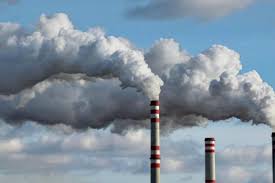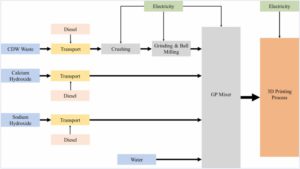Inequities in pollution exposure have long been a topic of concern, but a recent study has shed new light on the stark disparities that persist. The findings underline how environmental hazards disproportionately affect neighbourhoods with lower socioeconomic status, bringing focus to the urgent need for more robust environmental justice policies. The implications for public health, the landscape of social inequality, and the economic burdens on already marginalised communities are significant, necessitating a concerted effort across sectors to achieve meaningful change.
The Toll of Inequality on Communities
The intersection between poverty and pollution is a complex interplay of various factors, including city planning, industrial zoning, and living conditions. A new study from the University of Virginia indicates that people in low-income areas are more exposed to harmful pollutants, such as those stemming from diesel fuel, which have significant health consequences. Low-income neighbourhoods and communities of colour face 28% higher nitrogen dioxide pollution levels compared to wealthier and predominantly white neighbourhoods.
This finding isn’t just a headline; it’s a reality that millions of people face daily and a direct challenge to longer, healthier lives for the residents of affected communities. The researchers leveraged reduced weekend commercial traffic to analyse the decline in diesel emissions. The reasons behind this disparity are multifaceted.
Historically, industrial facilities and major transportation routes have been sited in or near lower-income neighbourhoods, leading to increased levels of harmful emissions. Additionally, the lack of green spaces and inadequate infrastructure in these areas can amplify the effects of pollution, leading to higher rates of respiratory problems, cardiovascular disease, and other health issues among residents.
Regan Patterson, an expert in transportation and public health, emphasised the significance of diesel traffic as a pivotal source of disparities, supported by data aligning with community concerns. This cycle of adverse impacts creates a significant hurdle for social mobility and perpetuates the disenfranchisement of already vulnerable populations.
Environmental Injustice as a Determinant of Health
The study paints a clear picture of how environmental injustices compound pre-existing health disparities. For instance, exposure to particulate matter and other pollutants can exacerbate chronic conditions prevalent in underserved communities, such as asthma or diabetes. Furthermore, the economic strain of health costs and lost productivity due to illness can weigh particularly heavily on those who are already financially stretched.
Public health experts and advocates for social justice have long maintained that environmental conditions are as important as individual health behaviours. This broader perspective is vital for creating effective public policy that addresses the root causes of poor health and social inequality. The research underscores the need for tailored interventions that recognize the differential burden of pollution on low-income populations and seek to mitigate these disparities through community-driven solutions.
Researchers Call for Action
The study’s revelations serve as a clarion call for a reevaluation of current environmental policies and a push for more comprehensive approaches that centre on justice and equity. Such an approach would involve rethinking urban planning to ensure that all communities have access to clean air and water. It would mean engaging communities to develop strategies that address local environmental issues and promote sustainable living. And most importantly, it would entail the implementation of policies that prevent the continued disproportionate impact of pollution on the poor.
Targeting heavy-duty diesel vehicles presents an effective strategy for policymakers to address air pollution disparities nationwide, according to one of the study’s researchers, Sally Ellen. A 60% cut in diesel-related pollution correlated with a 40% decrease in air pollution inequality, benefiting historically marginalised communities.
Policy solutions may include stricter emissions standards, holding car manufacturers accountable for diesel claims, the implementation of ‘no-idling’ zones to reduce localised pollution, and the expansion of public transportation to reduce individual car usage in these communities. Innovations in energy and transportation can also play a role, with the adoption of cleaner fuels and the expansion of renewable energy sources providing a pathway toward a less polluting future.
However, the success of any policy hinges on the engagement and advocacy of the communities affected. Activists, scientists, and policymakers must work hand in hand with residents to design solutions that are both effective and culturally relevant. By fostering a spirit of collective action, we can leverage the strengths of diverse communities to build a more equitable and sustainable world.
Bottom Line
The study’s findings are a sobering reminder that the fight for environmental justice is far from over. We must continue to push for policies that recognize the fundamental rights of all people to live in clean and safe environments. This necessitates a shift in perspective, looking beyond the aggregate data of pollution levels to the individuals and communities most affected.
The work ahead is challenging, but the potential benefits are immense. By addressing the inequities in pollution exposure, we not only improve public health and strengthen local economies but also foster a more inclusive and participatory society. Ready to start your diesel claim? Click here now.





Be First to Comment